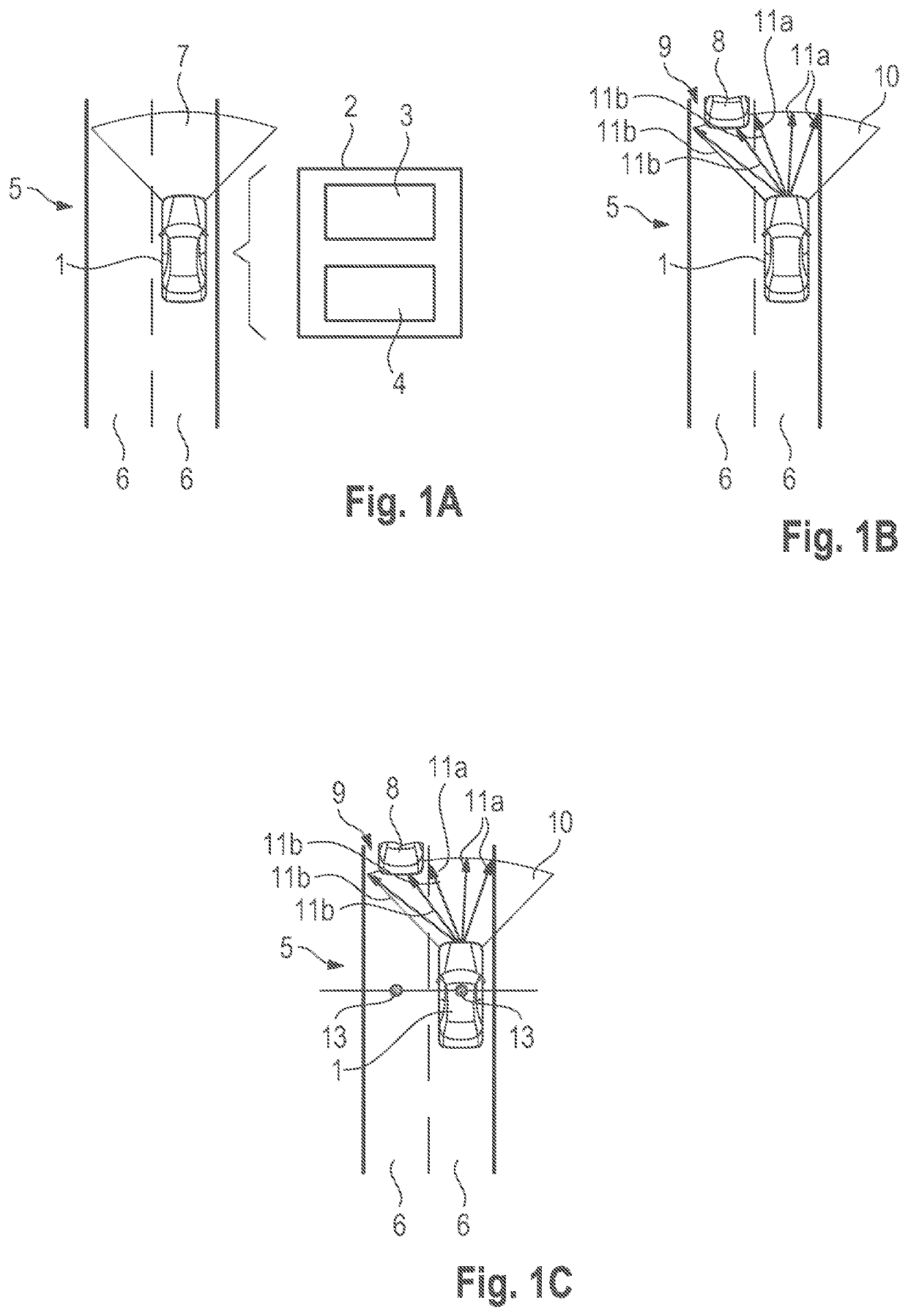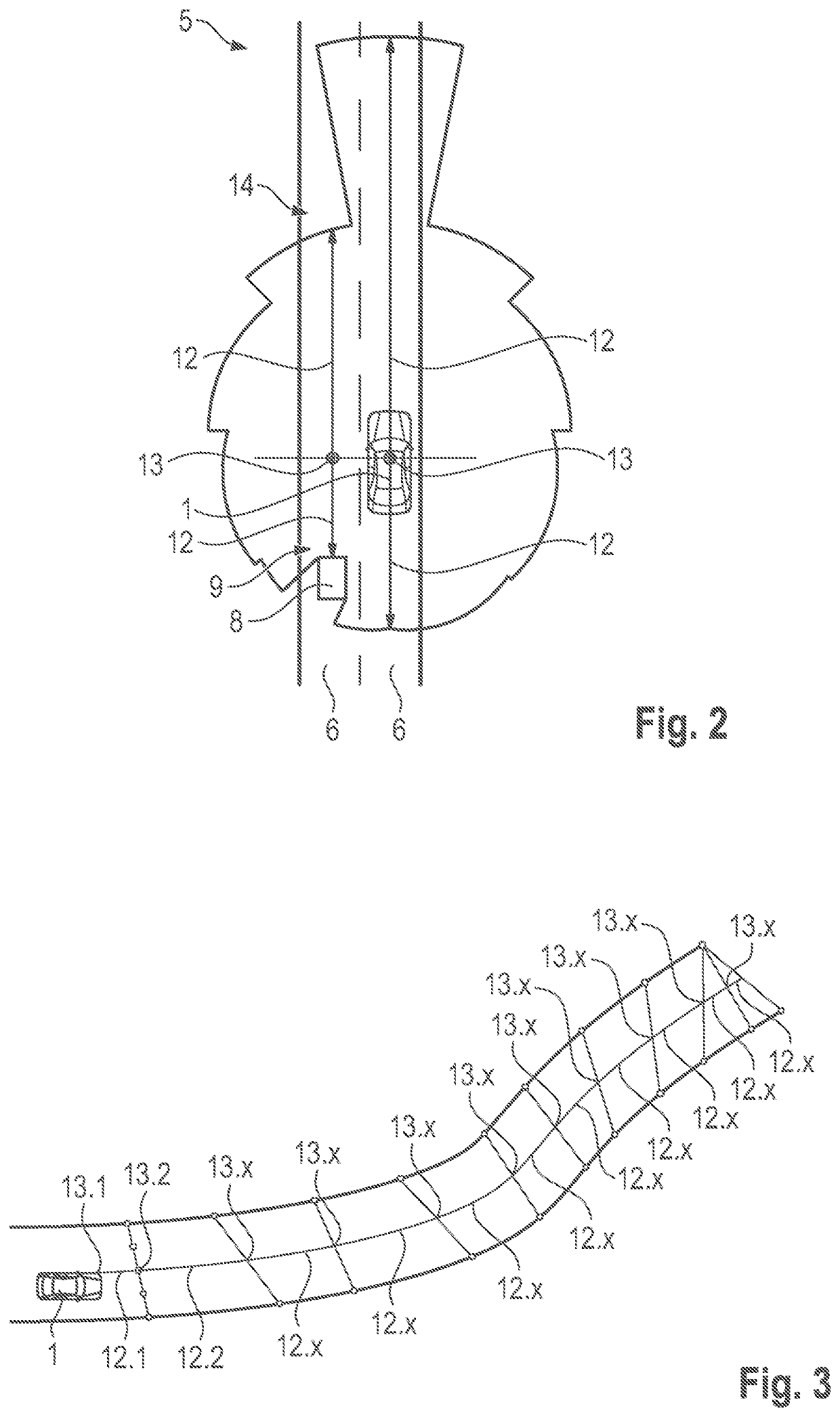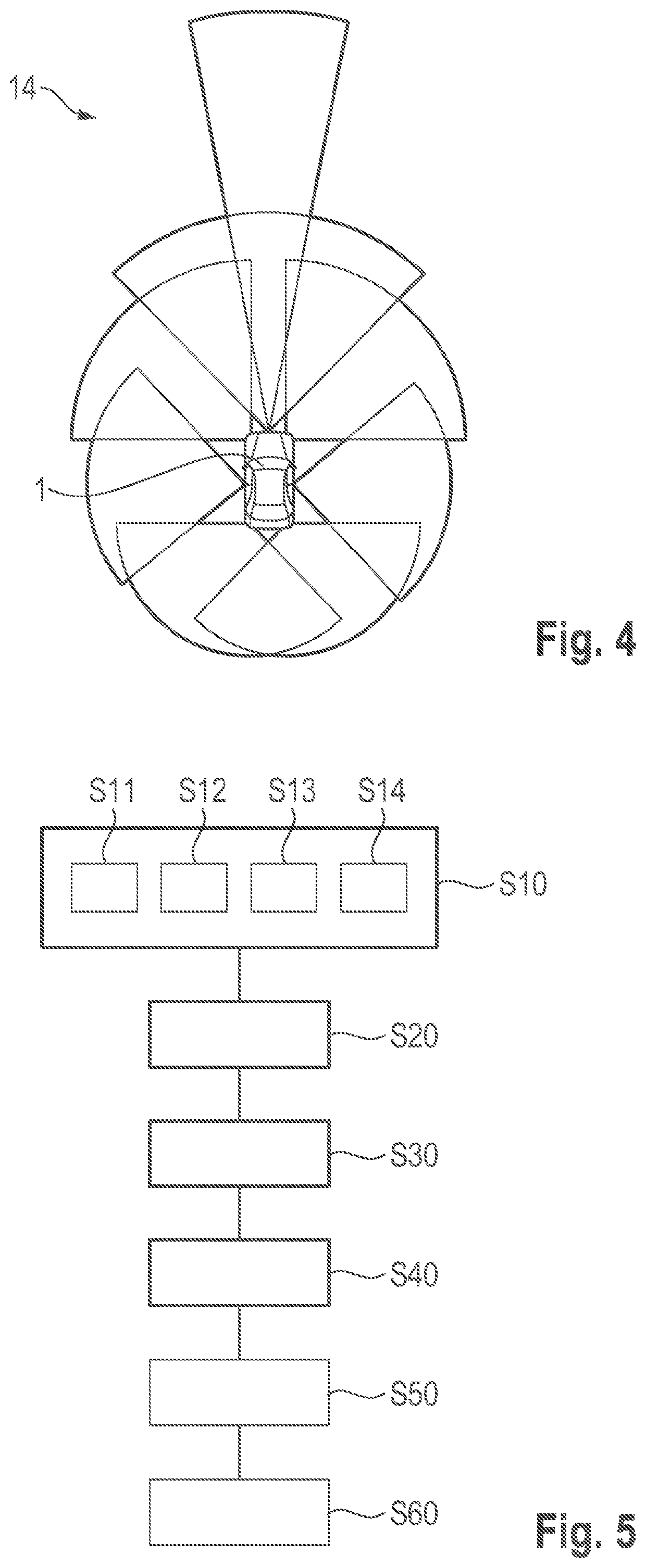Determining Visibility Distances Based on a Dynamic Field of View of a Vehicle
a dynamic field of view and vehicle technology, applied in vehicle position/course/altitude control, process and machine control, instruments, etc., can solve the problems of insufficient scenario understanding and decision, insufficient idea to increase the performance of sensors to achieve safe maneuvering decision making,
- Summary
- Abstract
- Description
- Claims
- Application Information
AI Technical Summary
Benefits of technology
Problems solved by technology
Method used
Image
Examples
Embodiment Construction
[0076]A system for determining visibility distances based on a dynamic Field of View, FoV, of an ego vehicle according to an embodiment of the second aspect of the present invention will be described with respect to FIG. 1A to FIG. 4 in the following.
[0077]In FIG. 1A an ego vehicle 1, specifically an autonomous car 1 is schematically depicted. The autonomous car 1 comprises a system 2 configured for determining visibility distances based on a dynamic field of view, FoV, of the autonomous car 1.
[0078]The system 2 comprises at least one sensor 3 that can be a LiDAR sensor, a radar sensor, an ultra-sonic sensor and / or the like. The system 2 further comprises a controller 4. The controller can be a separate unit with a processor, memory and interface or be part of an autonomous driving controller of the autonomous car 1. The autonomous car 1 is moving on a road 5 with two lanes 6. The road 5 and / or lanes 6 are delimited by map polygons in a map of the surroundings of the autonomous car ...
PUM
 Login to View More
Login to View More Abstract
Description
Claims
Application Information
 Login to View More
Login to View More - R&D
- Intellectual Property
- Life Sciences
- Materials
- Tech Scout
- Unparalleled Data Quality
- Higher Quality Content
- 60% Fewer Hallucinations
Browse by: Latest US Patents, China's latest patents, Technical Efficacy Thesaurus, Application Domain, Technology Topic, Popular Technical Reports.
© 2025 PatSnap. All rights reserved.Legal|Privacy policy|Modern Slavery Act Transparency Statement|Sitemap|About US| Contact US: help@patsnap.com



